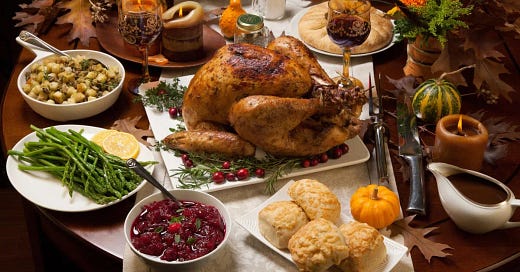“You prepare a table before me in the presence of my enemies.” Psalm 23:5
I’m no stranger to exclusion. I’ve lived the majority of my life either being excluded and more recently examining exclusive environments and advocating for those that are being excluded. Disability justice and inclusion are my passions. The Christian church is my platform.
Most all of my thoughts, insights, and inspiration flow through those lenses. I love my faith. I love the church and I am also critical of the church because I believe we can do better. I am a Christian and I am sometimes critical of Western Christianity because I believe we can be better.
Psalm 23 has long been a source of comfort for our culture. Whether you are Christian or not you have likely been exposed to one of King David’s most famous writings. We’re not exactly sure the context of the psalm but the influence of David’s short story about God as a shepherd is undeniable.
One of the most intriguing images in this psalm is the image of a table, prepared with what we appears to be a sumptuous feast and is displayed in the presence of David’s enemies.
Here’s what it gets tricky. The table is often an image used to communicate fellowship. It is the place where reconciliation and restoration is required. In the New Testament Jesus often uses the table of fellowship to reconcile religious and cultural indifference to outsiders, women, the disabled, the poor, and yes those whom were considered enemies.
When David transitions from the image of sheep in the psalm to the image of a table with empty seats it’s as though he is pointing to the need for a progression from the restlessness of worrying about my own daily needs to the responsibility of being conscious of the need to be an active participant in the ministry of reconciliation.
God is the host. God sets the table. God sends an invitation to the party of a life time, one staged with a feast for the ages and God, the good shepherd, makes a choice not to invite our family or friends, instead God invites us to enter into table fellowship with our foes.
After wandering the desert and being led into places of respite, after being given the honor and privilege to drink from the pool of peaceful streams and still waters, after having his very soul refreshed, God, David says, walks with him into a valley and asks him to have a seat at the table with someone who he doesn’t agree with.
Over my years of advocating for the disability community, I have learned a valuable lesson. Inclusion of all kinds is not always a priority in some Christian communities because we have found satisfaction in the safety of sameness.
The seats at our tables are reserved for people who are similar and while Jesus warns in the parable of the banquet (Luke 14) about seating arrangements and guest lists, we still struggle to take our place at the valley table because we are asked to sit with someone who is completely opposite from us.
I want to be clear here. This is not a post about disability inclusion. It is about the current state of our faith, the church, and the power that politics has played in dividing us and how THAT is impacting our ability to be truly inclusive.
According to David, table fellowship with his opposite was the only place that he experienced an “overflowing cup” but our cups are far from overflowing. Our cups are empty. They are empty because we continue to overlook and over talk each other and our acceptance to God’s invitation to the table of reconciliation is long overdue.
We can’t continue to live this way. We can’t continue to do church this way. We can’t continue to damage our faith in this way. There are people who need to drink from overflowing cups, there are people who need to experience overflowing love and instead of overflowing cups they find empty cups at empty tables with empty seats because we can’t find it within us to accept Gods invitation to a life of greater satisfaction and greater significance only found at the table.
You see one of our greatest sin and greatest barriers to true inclusion can only be resolved at the table. Yet it is our arrogance that drives us away from the table and away from each other. Our arrogance gives birth to ignorance of one another as fellow bearers of God’s image because our arrogance won’t allow us to share a table where our instructions are to listen, to learn, and to love those who are different from us.
Here’s the problem. If we don’t sit we won’t be satisfied AND our faith will have no real significance. Our churches will continue to be as empty as our cups, and our faith will continue to be shallow as we struggle to resurface from the shadowy valley of death.
Here’s the truth we all need to hear:
We don’t have to be the same but we do have to be together.
If you want to be blessed don’t be stubborn, be seated. The table is set.






